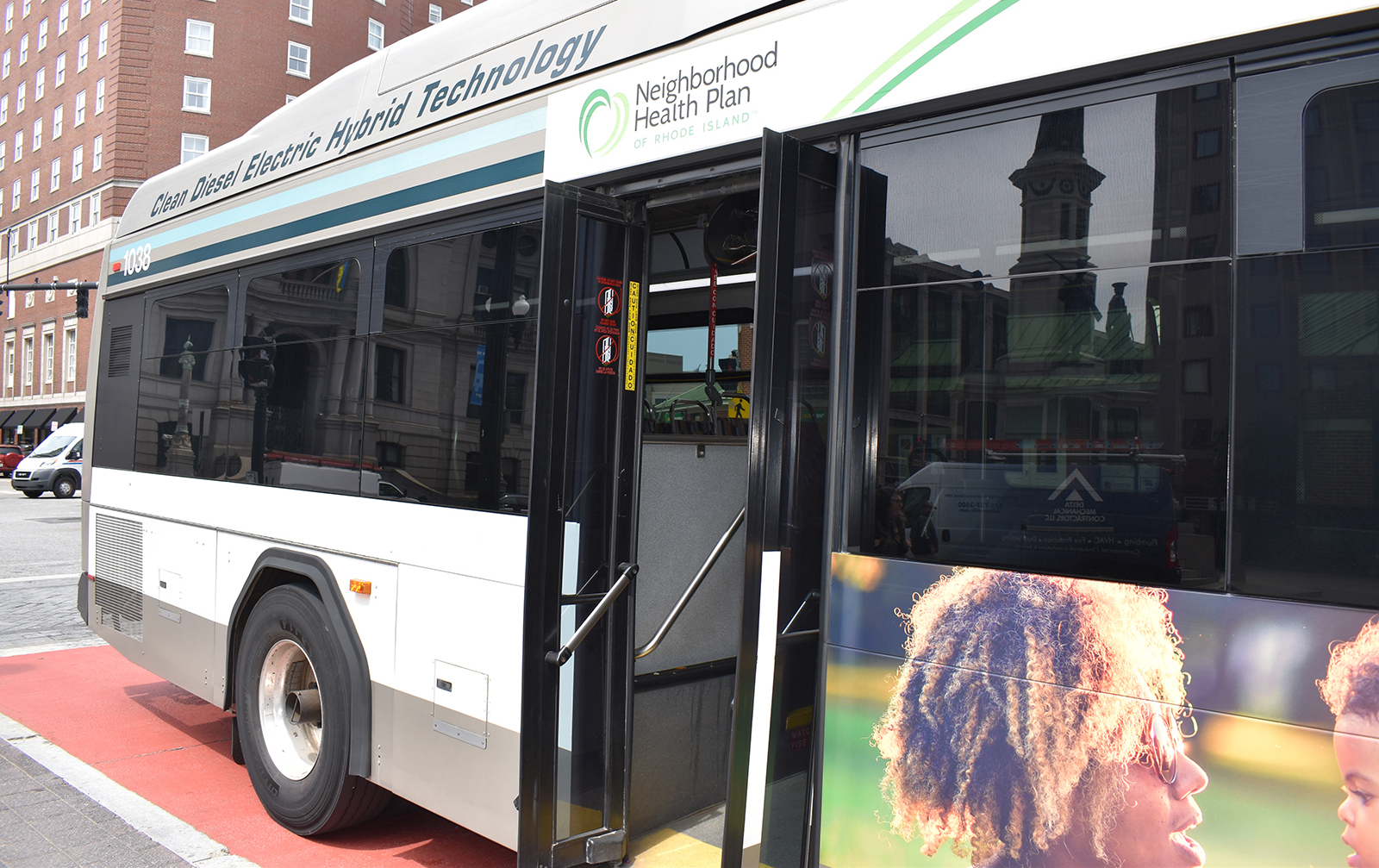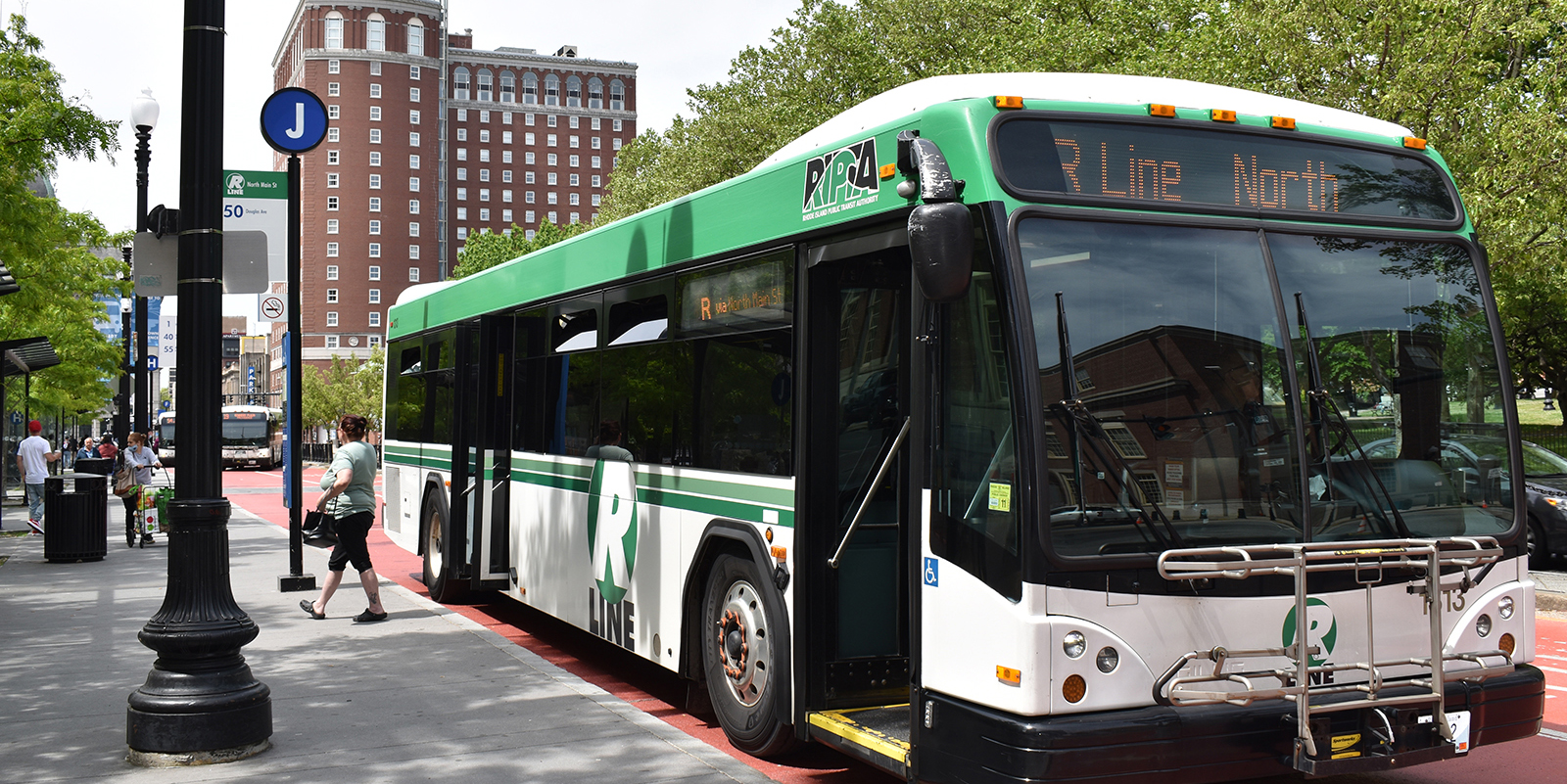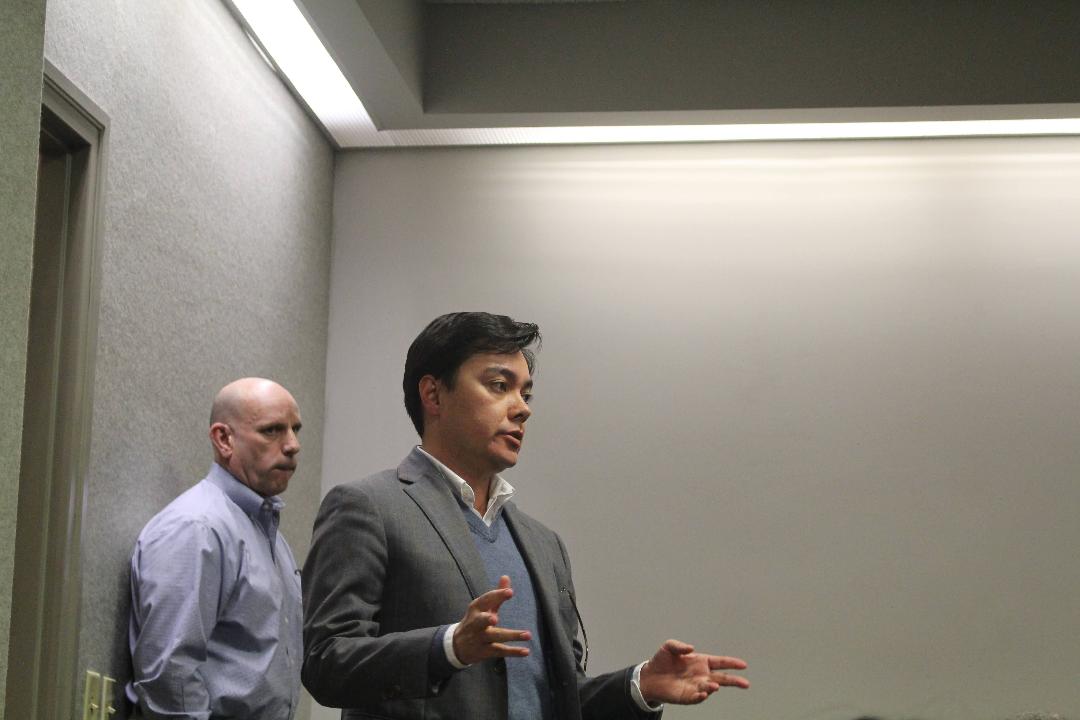RIPTA Board Again Tables Resolution Requesting Full Funding
April 17, 2023
PROVIDENCE — The Rhode Island Public Transit Authority’s board voted last week, for the second time, to table a resolution asking the governor and General Assembly to fully fund the agency.
Last month, the board voted to amend and then reconsider the resolution at its April meeting. A working group formed to add some fine points to the document during the period in between.
But when the resolution came before the board again, on April 12, some members expressed concern that the resolution was still too broad and didn’t include specific amounts of money the agency would need.
RIPTA currently faces a fiscal cliff in 2025, when it is set to run out of federal pandemic funding that has been keeping the agency afloat. More funding will also be needed to fulfill the state’s Transit Master Plan, which lays out goals to improve service and make it greener.
“I would feel a lot better waiting until we had an actual form,” said Rhode Island Department of Transportation director and RIPTA board member Peter Alviti. “We’re just talking about a bowl of jello.”
Alviti said it would be “bedlam” sending the resolution out to lawmakers, who could then come up with different funding methods without specific numbers.
Patrick Crowley, a board member who also sat on the resolution working group, voted to table the resolution because it was still too vague. The work done on the draft was mostly to adjust the tone — which Crowley called “really aggressive” in the first version — as well as to use the resolution to showcase the work of RIPTA staff.
Crowley told ecoRI News he couldn’t explain why specific numbers weren’t added to the document, although they had been discussed during the drafting of the second version of the resolution.
Even if specific numbers had been added, Crowley said he wasn’t sure he supported taking this type of action.
“I just don’t think that passing a resolution is the most productive use of our time,” Crowley told ecoRI News. “It seems symbolic, when what we really need is meaningful communication with the leadership and the General Assembly and the governor’s office about what it’s going to take to make sure that the agency has the resources it needs.”
RIPTA’s chief legal counsel, Steven Colantuono, pushed back against Crowley and Alviti’s arguments at the recent meeting and said the resolution was the best way to communicate the seriousness of the agency’s funding needs and doesn’t need to be specific.
“If we have a resolution of support from our board, which is our highest speaking authority, that goes to the other highest speaking authorities in this state, it carries weight,” he said.
RIPTA chief financial officer Chris Durand said the staff has been doing substantial work to better understand the specifics of what amount of funding they’ll need for different initiatives.
The agency has also outlined some of its funding needs for fiscal years 2023 to 2028 in its Annual Financial Plan.
Durand said the ambiguity at the end of the amended draft about specific funding was left that way so the board could direct RIPTA on what should be added.
“This is … a board policy decision, you know, what are the things that we are asking the General Assembly for? And so, at the very end of this document, there is still some unknowns as to what it is that we are asking for,” he said.
Board member Marcy Reyes said she would like to see some adjustments to the resolution, but not too many specifics.
“The resolution as it stands does have an opportunity to be a little bit more robust in language,” she said, explaining she would like to add some of RIPTA’s recent successes. “I don’t think you need to get extremely granular.”
Some transit riders testified in support of the resolution and have been calling for more funding in general; many were unhappy with the April 12 vote.
“I’m disappointed that it was a missed opportunity for the board to come together around something that they presumably all agree on, which is that transit needs more stable, sustainable, and predictable funding in order to implement this mission,” said John Flaherty, deputy director at Grow Smart Rhode Island and a frequent bus rider.
Flaherty, who attended the meeting, told ecoRI News the questions raised around specificity were not legitimate and didn’t fit in with the resolution’s purpose.
“The point of the resolution was to get the attention of the governor and legislative leaders,” he said. The funding needs and looming cliff are “something that you just can’t spring on the Legislature or the governor, the moment that you need it, this is about building, helping to build the case.”
Patricia Raub, co-coordinator of the advocacy group Rhode Island Transit Riders, also expressed disappointment about the vote.
“I fail to understand why the board is unwilling to join with riders to encourage the General Assembly to provide the funds to fully fund RIPTA and implement the Transit Master Plan,” she wrote in an email to ecoRI News.
Amy Glidden, the other co-coordinator for the Transit Riders, said she believes that working on the resolution seems counterproductive at this point, noting that she thinks “fully funding the agency you’re on the board of should not be a controversial issue.”
“I don’t think a resolution is really necessary for us to move forward with asking the General Assembly for money,” she said. “It just seems like it’s being used as an issue to divide the board. The level of dysfunction must be in someone’s best interest in order for it to be continuing.”
Board chair Normand Benoit asked RIPTA staff prepare a “smorgasbord” of options for the body at its next meeting, scheduled for May 17, as well as a separate resolution that would address only the funding needs for the fiscal cliff.




30% of London busses are now fully electrified or hybrid, and they have more serious budget issues than RIPTA. It can be done.